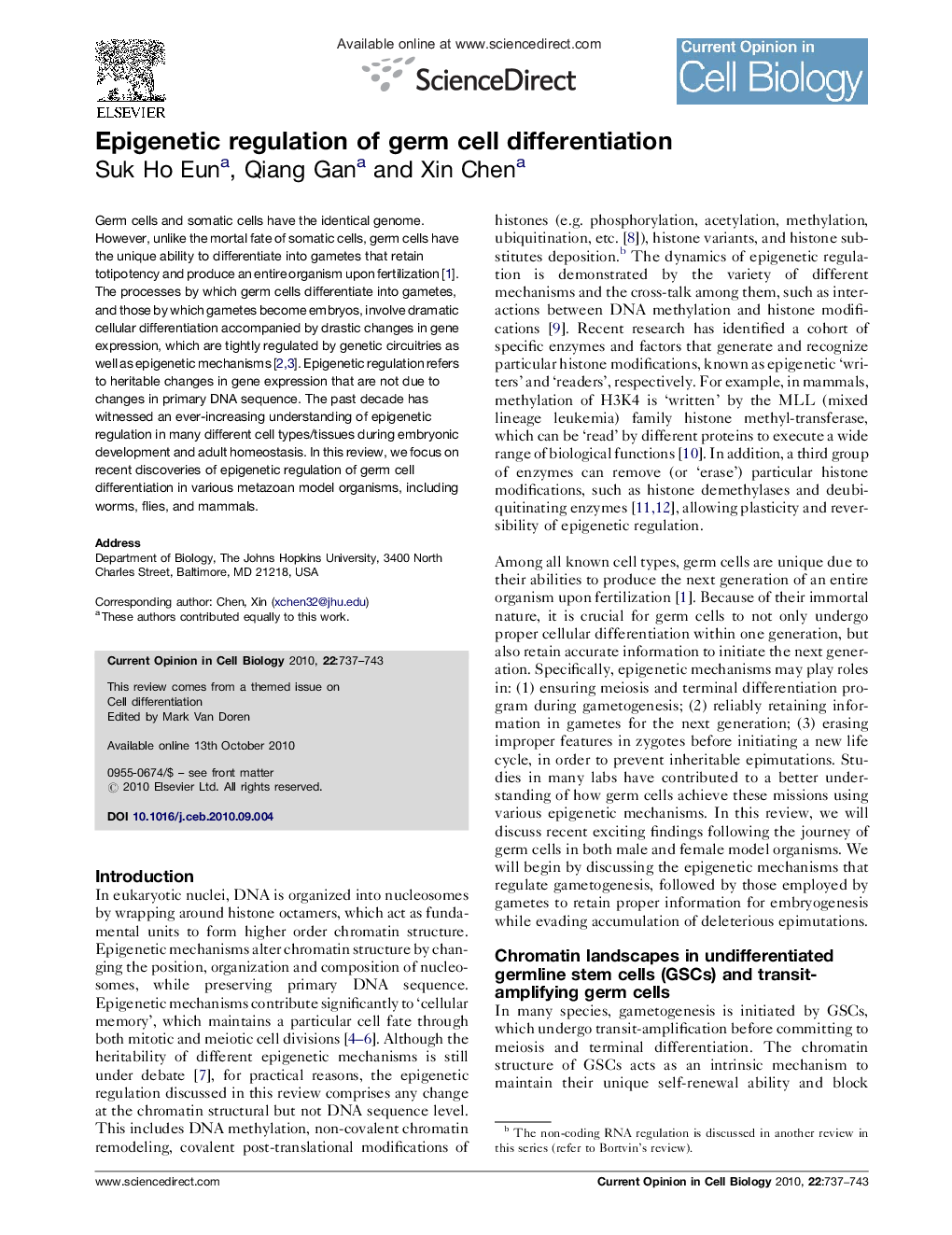| Article ID | Journal | Published Year | Pages | File Type |
|---|---|---|---|---|
| 2169978 | Current Opinion in Cell Biology | 2010 | 7 Pages |
Germ cells and somatic cells have the identical genome. However, unlike the mortal fate of somatic cells, germ cells have the unique ability to differentiate into gametes that retain totipotency and produce an entire organism upon fertilization [1]. The processes by which germ cells differentiate into gametes, and those by which gametes become embryos, involve dramatic cellular differentiation accompanied by drastic changes in gene expression, which are tightly regulated by genetic circuitries as well as epigenetic mechanisms [2 and 3]. Epigenetic regulation refers to heritable changes in gene expression that are not due to changes in primary DNA sequence. The past decade has witnessed an ever-increasing understanding of epigenetic regulation in many different cell types/tissues during embryonic development and adult homeostasis. In this review, we focus on recent discoveries of epigenetic regulation of germ cell differentiation in various metazoan model organisms, including worms, flies, and mammals.
